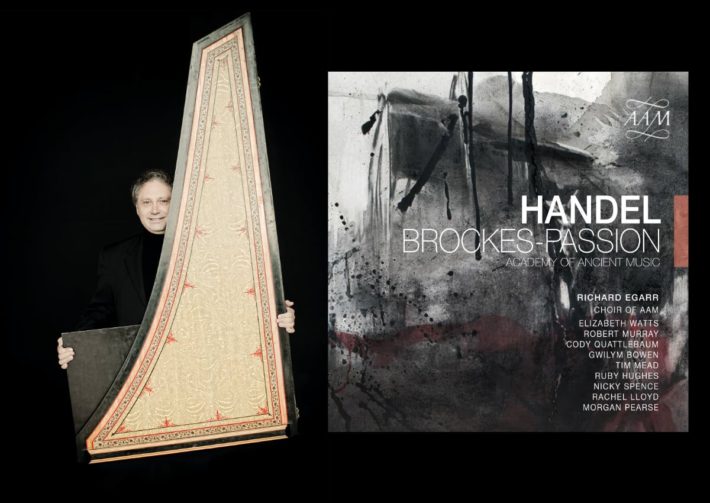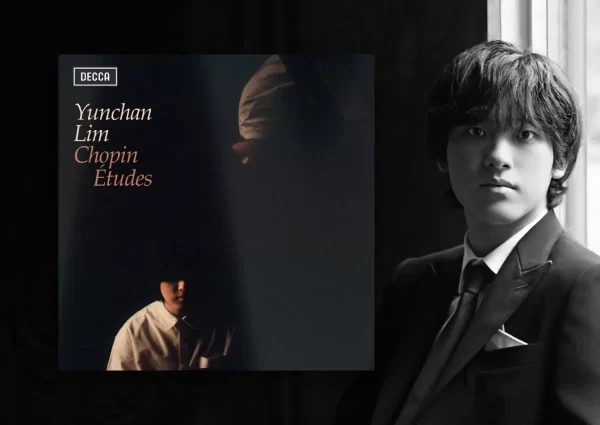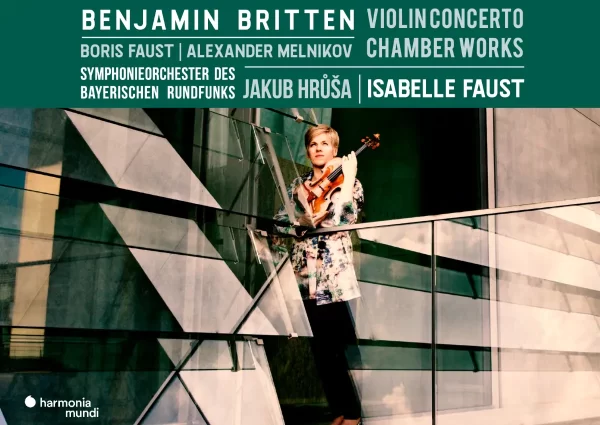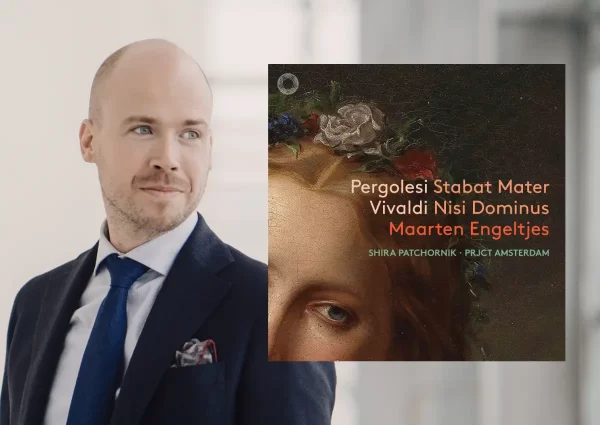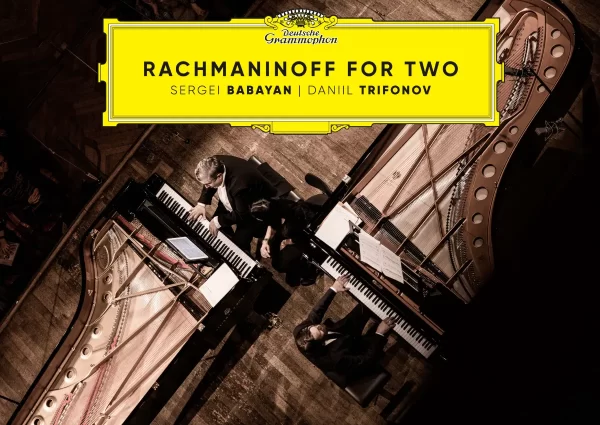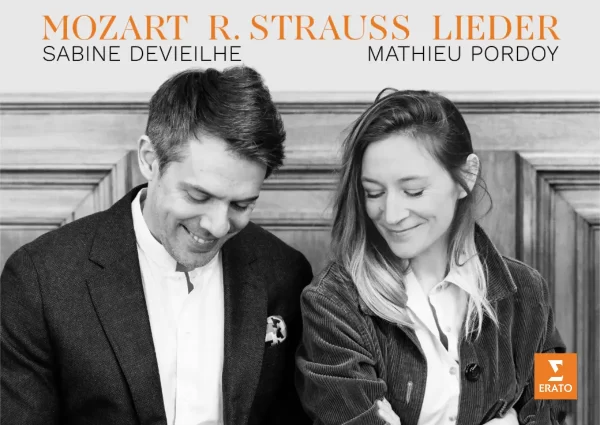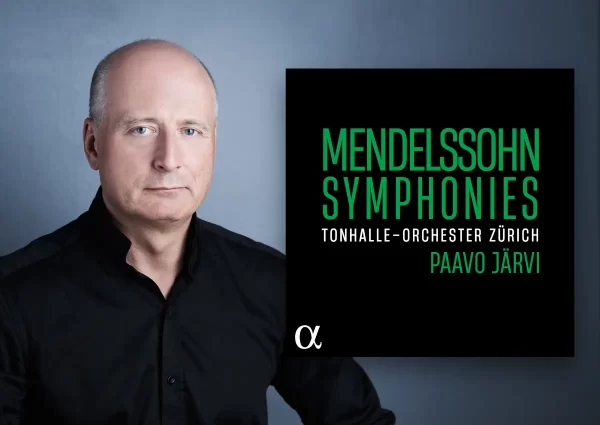Image: ©️ Marco Borggreve
This new release on the Academy of Ancient Music’s in-house label is the culmination of a two-year exploration of Handel’s little-performed passion setting. Part of the process was the creation of a new performing edition that involved examining 15 manuscripts and publications in four countries, a labor of love done by AAM oboist Leo Duarte. The recording was made in conjunction with a series of concerts celebrating the 300th anniversary of the first known performance in Hamburg during Easter Week 1719.
The recording is housed in a sturdy sleeve-box with a hardback book featuring extensive notes and articles about the work by Egarr, Duarte and several Handel scholars, including Dr. Ruth Smith, Dr. Bettina Varwid and Jane Glover, as well as the complete libretto. The Passion performance takes up the first two CDs, while the third CD contains alternative movements and the premiere recording of the completed movements using Charles Jennen’s English translation. All this material is exceptionally valuable for helping the listener appreciate what is surely one of Handel’s least known masterpieces: indeed, this is only the fifth recording of the work (the CPO label is releasing a recording of the work next month).
Of course, the most important aspect of any new recording is the actual performance, and Egarr and his musicians do not disappoint. Brockes’ libretto is unusually direct and at times even gruesome, surely with the intent of making the listener actually experience Christ’s agony and feel responsible for that suffering. There are innumerable examples throughout the work, but as an example, after Peter denies Jesus three times and the cock crows, Peter runs away and castigates himself (Track 37) saying “What unbearable agony overwhelms my spirit…my bowels screech on glowing coals,” moving into an aria (Track 38) in which he refers to himself as “…scum…weep, you scum of humankind…weep blood, sulking singer.” Visceral and violent imagery indeed, and inescapably human.
Indeed, what comes across most clearly in this performance is that this is an intensely human Passion. Just listen to Cody Quattlebaum’s portrayal of Jesus in his Gethsemane prayer (CD 1, tracks 15 & 16), where the bass-baritone conveys both Jesus’ desire to do God’s will but also Jesus’ real human fear about the suffering to come. Likewise, Gwilym Bowen makes Peter’s guilt unbearably intense, just as Brockes surely intended. Particularly powerful is the short duet between the Daughter of Zion and Jesus (CD 2, track 4), where the frustrated daughter challenges Jesus to respond to Pilate’s arrogant questioning with righteous anger. Jesus’ response (“No, I wish to show you how with silence I restore what you lost through prattling”) finds Quattlebaum now fully committed to Jesus’ sacrificial role. The Daughter of Zion, masterfully sung by Elizabeth Watts, carries a lion’s share of solo singing that encompasses a wide gamut of emotional states. Each soloist relishes Handel’s operatic writing, painting the emotions in bold and authentic colors, without ever descending into cloying sentimentality.
While the orchestral playing is beyond reproach, the listener may sometimes wish the chorus to more fully inhabit their characters. In the exchanges between Pilate and the crowd (CD 2, tracks 5 to 9) their singing is always beautiful, even as they demand the death of Jesus. What would Gardiner’s Monteverdi Choir, or McCreesh’s Gabrieli Consort make of these same passages? The same passages in Neumann’s Carus recording (2010) offer greater characterization, in part because his choir is slightly larger than Egarr’s (17 members compared to 20, respectably), bringing an extra weight and power to the choral sound. This passage, perhaps, would be more impactful with a more dramatic forward momentum, shortening or eliminating pauses between sections.
But these slight misgivings are quickly forgiven in a performance that gets so much right. Particularly impressive is how Egarr sustains the dramatic thread through the final movements, despite what is arguably too many commentaries from the Daughter of Zion and other Faithful Souls. Overall, this is an engaging and impressive performance, captured in immediate, well-balanced sound, with a wealth of ancillary materials that will make this recording a first choice for many listeners.

Handel – Brockes-Passion
Academy of Ancient Music
Choir of the AAM
Soloists: Elizabeth Watts, Robert Murray, Cody Quattlebaum, Gwilym Bowen, Tim Mead, Ruby Hughes, Nicky Spence, Rachael Lloyd and Morgan Pearse
Richard Egarr – Conductor
Follow Us and Comment:
Get our periodic classical music newsletter with our recent reviews, news and beginners guides.
We respect your privacy.

